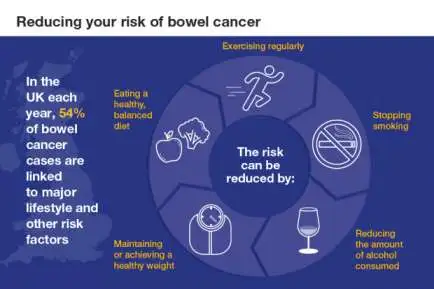
Rural healthcare access in the U.S. continues to suffer due to problems with affordability, former agriculture secretary Mike Espy, now the Democratic candidate for a Senate seat in Mississippi, said Tuesday at a virtual meeting of the Rural Council at the Democratic National Convention.
“So many low-income persons are afraid to get sick, because when they get sick, they’re afraid of that hospital bill, and when they go, they can’t pay it,” and that uncompensated care makes hospitals more likely to close, Espy said. And “we have a problem with primary healthcare, because there’s no confidence to know ‘I’ve got medical insurance to take care of my hypertension, to take care of my diabetes, to take care of my health issues.\'”
Two Asthma Stories 60 Years Apart
Espy, who is Black, explained that he had severe chronic asthma, and that during his childhood, there was one day when he couldn’t breathe. “The last thing I remember is that my father threw me over his shoulder … and he rushed me to the hospital.” Because healthcare facilities were segregated back then, “we went to the Black hospital — and the Black hospital had run out of oxygen.” By this time, Espy was comatose and had begun to turn blue; the nurses started singing “Amazing Grace,” as if to give him last rites. “But my father didn’t wait for prayer — he got in the car and drove to the white hospital,” Espy said. “They gave him the canister of oxygen I needed … and I’m alive today.”
Problems with access to care still persist today, Espy said. Last year, a 23-year-old Black woman living in a rural area of Mississippi died after having an asthma attack; the nearest emergency room had closed, and by the time her family was able to get her to another hospital, it was too late. “Her cousins took her to an emergency room 8 minutes away, but that emergency room was closed because of uncompensated care,” said Espy. “They tried to take her to the other hospital 30 minutes away and she succumbed to the asthma attack; she died en route.”

“So 60 years between my story, which had a fortunate ending, and her story, which was the other way,” he said. “This was all because of a lack of Medicaid expansion — all because of some of these communities deciding that if it’s part of the Affordable Care Act and connected to Obamacare, they don’t want it. It makes no sense. Let’s do what Missouri has done, let’s do what Oklahoma did, let’s make sure we expand Medicaid. In Mississippi, that will mean 211,000 people automatically would have access to medical insurance. It will make sure these rural hospitals remain open, it will make sure prescription drug costs will go down.”
Sen. Doug Jones (D-Ala.) agreed. “In Alabama alone, we’ve lost seven or eight rural hospitals since the Affordable Care Act was passed because Alabama did not expand Medicaid … because it was a politically toxic thing,” he said. “Well, we’re paying the price; so many people don’t have access to healthcare, and we need to do what we can to expand Medicaid for the folks in Alabama.” Before the pandemic, Medicaid would have helped 300,000 people in the state, but “now it’s probably closer to 450,000 people or more after they’ve lost their jobs,” said Jones.
Coronavirus Woes
Mississippi is also suffering because of the COVID-19 pandemic, Espy said. “In Mississippi, unfortunately we now lead the U.S. in the rate of daily positives when it comes to transmission of the virus. Something went wrong somewhere, and we know where and we know why. The president said it was a hoax, that it was going to magically disappear … He said it would be over by Easter.”
Now, with Congress still disagreeing on a coronavirus aid bill, “the Senate let everybody go home,” he said. But instead of letting up on the issue, “it’s time to put the accelerator down, time to put in more resources so we can beat this virus. There is no federal move coming from the White House to arrest this pandemic. It has been herky-jerky and ad hoc, and that’s why states have been left to their own devices. States like Mississippi closed too late and reopened too early … We need better leaders like Joe Biden. He’ll listen to scientists, listen to medical doctors — he’ll listen and do what they say.”
Another issue rural areas face is access to telemedicine, Jones said. “This administration is priding itself and saying they’re doing more to help with telemedicine — they did open that up, but they opened that up after prodding from people like me and others. But even that is not available to everyone because so many lack broadband … About 250,000 people in my state have no Internet access at all. We’ve got to do a better job.”
Rep. Cindy Axne (D-Iowa) agreed. “We have to work to level the playing field to make sure we don’t leave rural businesses, schoolchildren, and health services behind,” she said. “We need connectivity from a medicine perspective, a healthcare perspective, and an education and economic perspective. We need to make healthcare affordable and more available for every person in the country, in their own backyard.”

Kentucky Gov. Andy Beshear (D) also supports increased access for rural healthcare. “None of us want to have to drive 2 1/2 hours just to see a doctor,” Beshear said. Because Kentucky expanded Medicaid, “that’s the reason our rural hospitals are still open, and the reason despite being 1, 2, or 3 in diabetes, heart disease, or lung cancer, we have one of the lowest per-capita death rates due to COVID. It’s because healthcare saves lives, and expanded Medicaid saves lives in rural America.” But access is still elusive for some, he added. A family in rural Kentucky who has a child with autism “may have to drive 3 hours to get an appointment and when they’re there, the doctor says the best thing they could do is move. Nobody should be told that.”
Native Americans “Ravaged” by COVID-19
Healthcare access also was at issue in the Native American Caucus meeting. “Some Native communities are getting ravaged by COVID-19. Your elders and fellow citizens are sick and dying, and tribal businesses have been forced to close,” said Sen. Elizabeth Warren (D-Mass.). “In the meantime, the Trump administration has actually fought against providing relief directly to tribal nations.”
Warren said she and Rep. Deb Haaland (D-N.M.), who is Native American, successfully pushed to get aid to Native Americans in one of the COVID relief bills, “but since then [Treasury] Secretary Mnuchin dragged his feet on distributing the aid to tribal governments. We fought to get him to act and we have been partially successful on that, but those delays meant more suffering, more illness, and more death. Tribes should not have been forced to wait weeks for desperately needed funds.”
“When you see what’s happening right now in Indian Country when it comes to COVID-19, it’s not a coincidence,” said Rep. Ruben Gallego (D-Ariz.). “This is an area of our country we’ve ignored, we’ve marginalized, we have not invested in, and we have not fully empowered, so when COVID-19 came along, it totally took hold in our communities. Luckily, our Indian communities, they’re resilient; they’ve survived worse … It’s our responsibility now to make sure we’re doing everything to get Indian Country back on its feet, for it to succeed, and for it to be respected.”
Related Post
 08
08 Jul
What Is Self-Management of Chronic Disease?
Diabetes, joint inflammation, hypertension, lung illness, corpulence and other persistent sicknesses can make life challenging to oversee for a great many more seasoned grown-ups, frequently compelling them to surrender their freedom. The Challenges of Chronic Disease More established grown-ups are lopsidedly impacted.
Read More 01
01 Jul
7 Lifestyle Tips to Reduce Your Cancer Risk
How in all actuality do individuals bring down the possibilities getting malignant growth? There's a lot of exhortation. Yet, on occasion, guidance from one review conflicts with the exhortation from another. Disease avoidance data keeps on creating. In any case,.
Read More 27
27 Jun
Effective Allergy Treatments for Kids: A Comprehensive Guide
Is your youngster experiencing a runny nose, sniffling, and bothersome eyes? Assist them with feeling improved with these regular sensitivity cures you can attempt at home. Does your kid have a runny nose, sniffling, and irritated eyes? They may be managing.
Read More 20
20 Jun
Journal Prompts for Mental Health: 7 Ideas to Explore
Journaling has a heap of psychological well-being benefits, however you don't necessarily have any idea what to expound on to get the worth out of a journaling meeting. That is where journaling prompts for treatment come in. More profound diary prompts.
Read More
